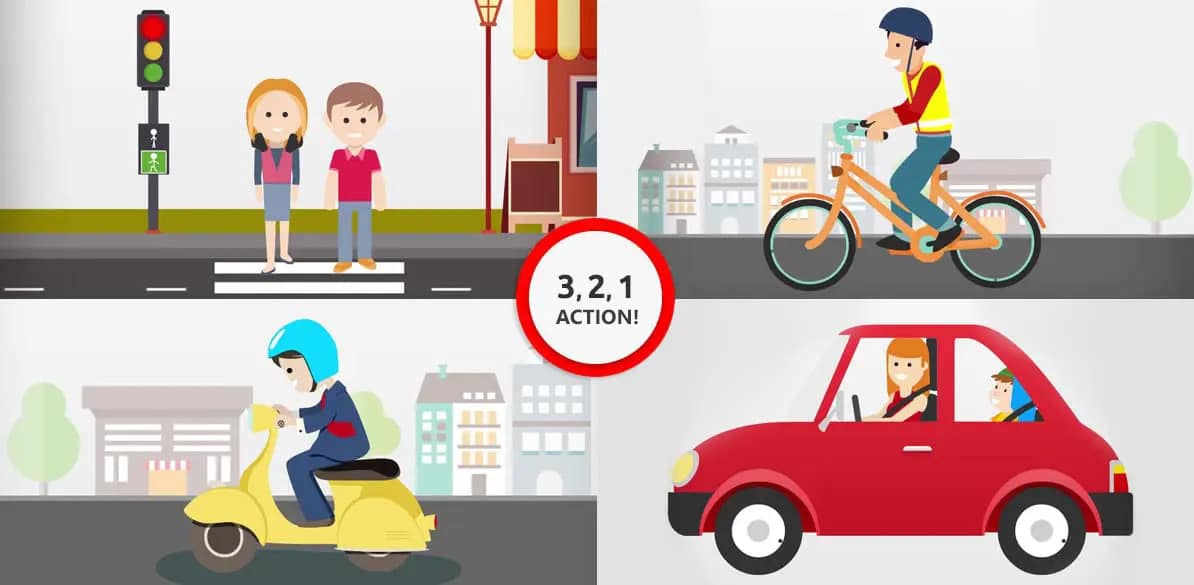3,2,1… Action!
Three initials that save lives: PAS (‘Proteger, Avisar y Socorrer’ which translates as Protect, Advise and Assist). A rapid response in the event of an accident can make all the difference

Road Safety
Every year, nearly 1,300,000 people are killed on the roads and 50 million are injured, according to data from the World Health Organization and the World Bank. This means all of us should know how to react in the event of an accident.
Fundación MAPFRE is convinced that we can achieve Goal Zero, but this will require all of us to commit to it. To achieve it, we are working on the main risk factors such as the alcohol and driving binomial, excessive speed, driving under the influence of drugs, distractions and not using key safety devices such as seat belts, child restraint systems and helmets.
Join us by signing up for our initiative. In return for your commitment we will put €5 towards our Education Programs on Accident Prevention and Road Safety. Don’t think twice and Join the GOAL ZERO challenge!
We are also focusing on those vulnerable groups such as motorists, cyclists and pedestrians who are the most fragile road users in the event of traffic accidents. All of the work carried out year on year with everybody’s total commitment could mean that, in 2030, nobody dies as the result of road accidents within cities. If we continue working on reducing the number of victims, 2050 could be the first year in which nobody at all is killed in a traffic accident. Will you help us to achieve this?
Driver, don’t forget this advice once behind the wheel.
Rapid and effective assistance can save lives. In the event of an accident, put PAS into practice: First Proteger (Protect), second Avisar (Advise) and third Socorrer (Assist). Let us tell you how it works:
- Protect: protecting yourselves and the victim. When you come across an accident you need to ensure that it does not cause another one. If it is a traffic accident, you should park your car in a safe spot, put on a reflective vest and mark the accident by positioning triangles. They must be 50 meters away in order to be visible from 100 meters. If the road is one-way, both triangles can be used in the same lane to provide an earlier warning. If, on the other hand, it is a two-way road, you must position them to be visible from both directions. It is also advisable to turn off the damaged vehicle at the ignition.
- Advise: it is important for those with potential injuries to receive specialist treatment as quickly as possible. To ensure this you must call 112 to request assistance and try to provide as much information as possible: location of the accident, number of vehicles involved and the number of injured as well as their condition (if they are conscious, have visible injuries, and so on).
- Assist: you must help to the best of your ability, always following the instructions from 112. It is very important to know that you must not remove the helmet of a cyclist or motorcyclist. Faced with this kind of situation, you should stay at the side of the wounded.
In this way we will be able to save many lives. Goal Zero accident victims is ever nearer. Help us to succeed in reducing the number of deaths and injuries year on year until we get to zero!
Remember: memorize these three initials that save lives: PAS, ‘Proteger, Avisar y Socorrer’ (Protect, Advise and Assist).
